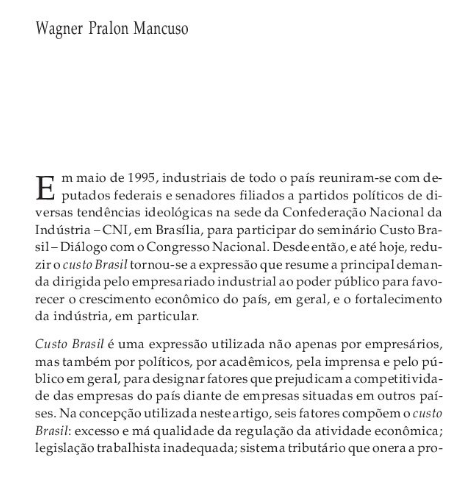
The Industrial Lobby in Congress: Business Leaders and Politics in Contemporary Brazil
7 de June de 2004A Brief History of the Development of Lobbying in Brazil
28 de October de 2005The Lobby of Industry in the National Congress: Business and Politics in Contemporary Brazil

The article shows how reducing external factors affecting competitivity, known as “custo Brasil” (which may include the cost of hiring labor, taxes on exports or the poor state of transportation infrastructure), has become the center of industry’s political agenda. There follows a discussion of the current political situation of industrialists and their representatives in the process of producing federal legislation related to this cost. Thirdly, it proposed a method of measuring the degree of success achieved by industry. The method is to make a systematic comparison of the positions of industry to the decisions taken on bills listed in the Agendas Legislativas da Indústria, an annual publication of the National Confederation of Industry (CNI), prepared by a network of business organizations that includes, besides CNI, federations of industry and dozens of sectoral associations. In the fourth place, the article presents the findings obtained using the method. These finding indicate that industrialists are much more successful than might be expected by those who speak of a weak Brazilian industrial policy.
Author: Wagner Pralon Mancuso
Source: https://www.scielo.br/j/dados/a/s9mYZz4LxXt5D4Rrkks9mMp/#
